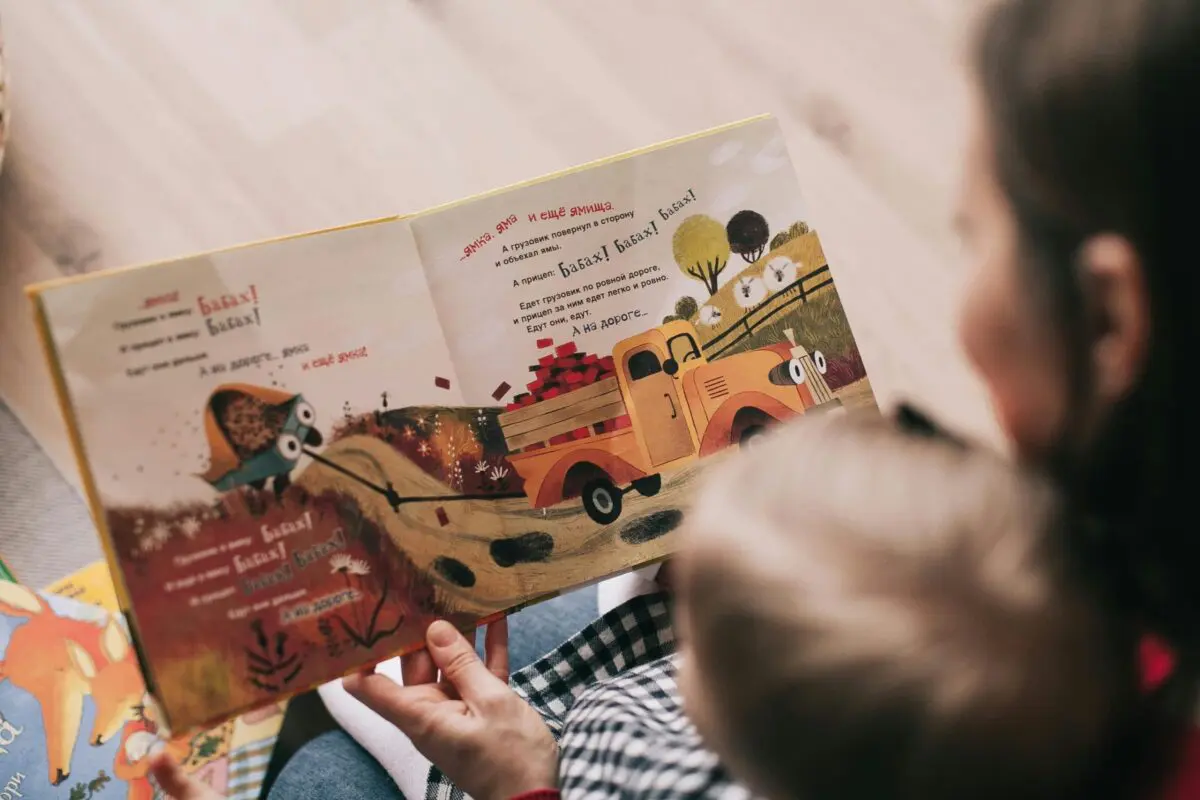Becoming An Emotionally Present Mother-5 Ways On How To Skyrocket Your Child’s Development
Introduction:
Motherhood is a journey filled with moments that shape your child’s future. Beyond providing love and care, being an emotionally present mother can make a powerful difference in how your child grows and thrives. Emotional presence isn’t just about being there; it’s about actively connecting, tuning into your child’s emotions, and creating a safe space for them to express themselves. Here are five impactful ways an emotionally present mother can skyrocket her child’s development.
1. Creating a Foundation of Trust and Security
- Emotional SafetyAn emotionally present mother creates a safe emotional space for her child by establishing trust and Security. When children feel they can rely on their mother’s presence and support, they develop a deep-rooted sense of safety that allows them to open up and be vulnerable without fear of judgment.
- Building ConfidenceTrust and security, fostered by an emotionally present mother, encourage a child to explore their world with confidence. Knowing they have a steady, reliable support system gives children the freedom to take healthy risks, try new things, and grow without fear of failure.
- Enhancing Emotional ResilienceAn emotionally present mother provides a consistent source of reassurance, which helps children learn to cope with life’s ups and downs. This steady foundation teaches them that they’re not alone in facing challenges, boosting their resilience and showing them that setbacks are manageable, not overwhelming.
- Promoting Honest CommunicationWhen a mother is emotionally present and creates a foundation of trust, children feel comfortable sharing their feelings openly. An emotionally present mother shows that she’s there to listen without judgment, which strengthens the bond and encourages honest communication—a crucial skill for building meaningful Relationships.
- Reinforcing Self-WorthAn emotionally present mother who prioritizes trust and security reinforces her child’s sense of self-worth. This strong foundation makes children feel valued and loved for who they are, which builds their self-esteem and prepares them to face life with confidence.
2. Boosting Communication Skills and Emotional Awareness
Being an emotionally present mother means deeply connecting with her child, and communication is at the heart of that connection. By boosting communication skills and emotional awareness, an emotionally present mother opens up a safe space where her child feels comfortable expressing themselves, fostering a bond that goes beyond words. Here’s why this approach is so effective:
- An Emotionally Present Mother Models Open CommunicationWhen a mother encourages her child to share their thoughts and feelings openly, she shows them the value of honest expression. This modeling teaches children that their feelings matter and that communication is a healthy way to process emotions, setting a foundation for emotional openness and trust.
- An Emotionally Present Mother Nurtures Emotional AwarenessBy helping her child identify and name their emotions, an emotionally present mother builds her child’s emotional vocabulary. This awareness is crucial for emotional intelligence, as it enables children to understand what they’re feeling and why. As they become more aware of their emotions, they gain confidence in managing them constructively.
- An Emotionally Present Mother Fosters Stronger RelationshipsCommunication and emotional awareness aren’t just skills—they’re tools that help children connect with others. When an emotionally present mother prioritizes these aspects, she equips her child with the empathy and listening skills needed to build meaningful relationships throughout their life.
- An Emotionally Present Mother Provides a Safe Space for VulnerabilityEncouraging open communication creates a non-judgmental environment where a child feels safe to be vulnerable. By allowing her child to express their worries, dreams, and fears without fear of rejection, an emotionally present mother strengthens the child’s sense of security and self-worth.
- An Emotionally Present Mother Empowers Emotional RegulationEmotional awareness and communication go hand-in-hand with self-regulation. When children learn to express their emotions openly, they also learn how to manage them constructively. An emotionally present mother who emphasizes communication helps her child develop self-regulation skills, teaching them to navigate intense feelings in a healthy, balanced way.

3. Fostering Healthy Relationships Through Empathy and Compassion
Click here to learn how to listen others into existence
An emotionally present mother plays a crucial role in teaching her child the value of empathy and compassion—two key qualities for building healthy relationships. By being empathetic and compassionate, an emotionally present mother models how to connect with others in meaningful, respectful ways. Here’s why this approach is so effective:
- Empathy as a Core Skill for Emotional ConnectionAn emotionally present mother shows her child how to empathize by listening closely, validating feelings, and showing understanding. When a mother takes the time to see things from her child’s perspective, it teaches the child that emotions are valued and respected. This fosters emotional intelligence, helping the child learn to connect with others on a deeper level.
- Modeling Compassion in Daily InteractionsAn emotionally present mother demonstrates compassion through everyday actions, whether it’s by comforting her child during tough moments or showing kindness in routine interactions. This consistent, compassionate behavior sets an example, teaching children that healthy relationships are built on kindness, patience, and understanding.
- Creating a Safe Space for Emotional ExpressionBy fostering empathy and compassion, an emotionally present mother creates a safe, open environment where her child feels comfortable sharing emotions. Knowing they won’t be judged but rather understood, children are more likely to communicate openly, building trust and closeness with their mother. This trust becomes the foundation for strong, lasting relationships in their lives.
- Helping Children Develop Positive Social SkillsAn emotionally present mother nurtures her child’s ability to empathize with others, which is key to forming meaningful connections. By teaching the importance of compassion, she prepares her child to navigate social interactions thoughtfully, treating others with respect and care. These social skills are vital for healthy friendships, partnerships, and other relationships throughout life.
- Encouraging a Supportive, Emotionally Rich Family EnvironmentWhen a mother is emotionally present, her empathy and compassion shape the overall atmosphere of the family. Children grow up in an environment where emotions are acknowledged and respected, reinforcing their understanding that love and compassion are foundational to strong relationships. This emotional richness within the family gives children the tools to build similar relationships outside the home.
4. Promoting Resilience and Emotional Strength
An emotionally present mother plays a crucial role in teaching her child the value of empathy and compassion—two key qualities for building healthy relationships. By being empathetic and compassionate, an emotionally present mother models how to connect with others in meaningful, respectful ways. Here’s why this approach is so effective:
- Empathy as a Core Skill for Emotional ConnectionAn emotionally present mother shows her child how to empathize by listening closely, validating feelings, and showing understanding. When a mother takes the time to see things from her child’s perspective, it teaches the child that emotions are valued and respected. This fosters emotional intelligence, helping the child learn to connect with others on a deeper level.
- Modeling Compassion in Daily InteractionsAn emotionally present mother demonstrates compassion through everyday actions, whether it’s by comforting her child during tough moments or showing kindness in routine interactions. This consistent, compassionate behavior sets an example, teaching children that healthy relationships are built on kindness, patience, and understanding.
- Creating a Safe Space for Emotional ExpressionBy fostering empathy and compassion, an emotionally present mother creates a safe, open environment where her child feels comfortable sharing emotions. Knowing they won’t be judged but rather understood, children are more likely to communicate openly, building trust and closeness with their mother. This trust becomes the foundation for strong, lasting relationships in their lives.
- Helping Children Develop Positive Social SkillsAn emotionally present mother nurtures her child’s ability to empathize with others, which is key to forming meaningful connections. By teaching the importance of compassion, she prepares her child to navigate social interactions thoughtfully, treating others with respect and care. These social skills are vital for healthy friendships, partnerships, and other relationships throughout life.
- Encouraging a Supportive, Emotionally Rich Family EnvironmentWhen a mother is emotionally present, her empathy and compassion shape the overall atmosphere of the family. Children grow up in an environment where emotions are acknowledged and respected, reinforcing their understanding that love and compassion are foundational to strong relationships. This emotional richness within the family gives children the tools to build similar relationships outside the home.
5. Instilling a Strong Sense of Identity and Self-Worth
Why Fostering Healthy Relationships Through Empathy and Compassion Is an Effective Way to Be an Emotionally Present Mother
An emotionally present mother plays a crucial role in teaching her child the value of empathy and compassion—two key qualities for building healthy relationships. By being empathetic and compassionate, an emotionally present mother models how to connect with others in meaningful, respectful ways. Here’s why this approach is so effective:
- Empathy as a Core Skill for Emotional ConnectionAn emotionally present mother shows her child how to empathize by listening closely, validating feelings, and showing understanding. When a mother takes the time to see things from her child’s perspective, it teaches the child that emotions are valued and respected. This fosters emotional intelligence, helping the child learn to connect with others on a deeper level.
- Modeling Compassion in Daily InteractionsAn emotionally present mother demonstrates compassion through everyday actions, whether it’s by comforting her child during tough moments or showing kindness in routine interactions. This consistent, compassionate behavior sets an example, teaching children that healthy relationships are built on kindness, patience, and understanding.
- Creating a Safe Space for Emotional ExpressionBy fostering empathy and compassion, an emotionally present mother creates a safe, open environment where her child feels comfortable sharing emotions. Knowing they won’t be judged but rather understood, children are more likely to communicate openly, building trust and closeness with their mother. This trust becomes the foundation for strong, lasting relationships in their lives.
- Helping Children Develop Positive Social SkillsAn emotionally present mother nurtures her child’s ability to empathize with others, which is key to forming meaningful connections. By teaching the importance of compassion, she prepares her child to navigate social interactions thoughtfully, treating others with respect and care. These social skills are vital for healthy friendships, partnerships, and other relationships throughout life.
- Encouraging a Supportive, Emotionally Rich Family EnvironmentWhen a mother is emotionally present, her empathy and compassion shape the overall atmosphere of the family. Children grow up in an environment where emotions are acknowledged and respected, reinforcing their understanding that love and compassion are foundational to strong relationships. This emotional richness within the family gives children the tools to build similar relationships outside the home.
Conclusion
Being an emotionally present mother isn’t about perfection; it’s about showing up authentically, listening deeply, and creating a safe, loving environment. These small, consistent acts of presence and connection make a world of difference in a child’s life. By fostering trust, communication, empathy, resilience, and self-worth, an emotionally present mother provides the nurturing foundation her child needs to flourish into a well-rounded, confident individual. The journey of emotional presence is a powerful gift—one that transforms both the mother and child, creating a lifelong bond filled with trust, love, and joy.
The post Becoming An Emotionally Present Mother-5 Ways On How To Skyrocket Your Child’s Development appeared first on Douglas E. Noll.
Originally Published on https://dougnoll.com/
Douglas E. Noll, JD, MA left a successful career as a trial lawyer to become a peacemaker. His calling is to serve humanity, and he executes his calling at many levels. He is an award-winning author, teacher, trainer, and a highly experienced mediator. Doug’s work carries him from international work to helping people resolve deep interpersonal and ideological conflicts to training life inmates to be peacemakers and mediators in maximum-security prisons. His website is https://dougnoll.com.













































